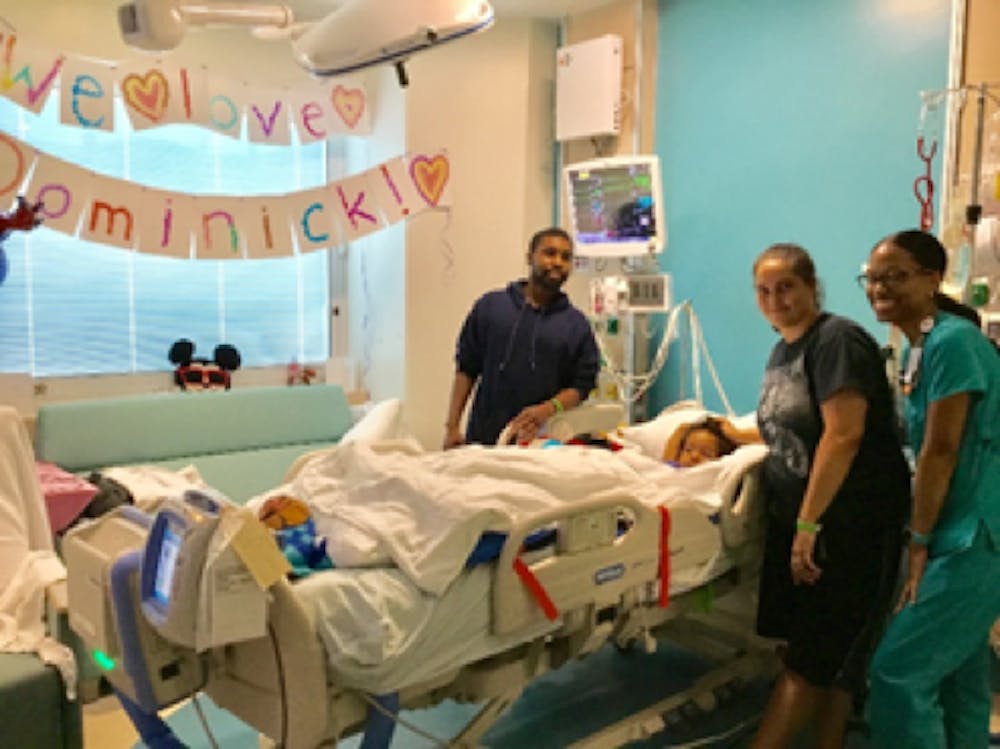The Hospital Education Program — a state-operated school run at the University’s Children’s Hospital — provides academic instruction for hospitalized children receiving inpatient services in the hospital, as well as support services for students receiving outpatient services in certain clinics. At the clinics, educational consultants serve as liaisons between the clinic and student’s schools and provide additional support to families as needed.
This school year, between Aug. 22 and Oct. 8, the HEP has enrolled 82 children between the ages of two and 22 in the school. The program has also assisted approximately 60 other students with their academics and the educational consultants have made 596 encounters this year.
Established in the late 1970s, the HEP was created out of a partnership between the Virginia Department of Education, the University Children’s Hospital and Charlottesville City Schools.
Eric Johnson became the director of the Hospital Education program this past July. As a new director, he said in an email to The Cavalier Daily that “there is a learning curve” because he “must master the daily operations of [these] three entities.”
The partnership between these three entities was formed in response to Section 22. 1-7 of the Code of Virginia, which maintains that state institutions with children in residence must provide the children with education that is at or above the level of education provided by the public school system. This state-issued mandate, according to Johnson, gave students “the opportunity to enroll in a school so that they can continue with their academics while receiving medical treatment.”
In addition to the University’s Children’s Hospital, two other hospitals in the Commonwealth of Virginia also have schools for hospitalized students — the Virginia Commonwealth University Health System Authority in Richmond and the Children’s Hospital of the King’s Daughters in Norfolk.
One of three in Virginia, the HEP at the University’s Children’s Hospital, offers academic instruction, art therapy and support services at no charge to families faced with medical situations that result in prolonged stay in the hospital.
Heather and Brandon Adams, two parents from Lynchburg, Va., have a son who was involved in a mowing accident that caused him to be hospitalized for several days. They did not worry about their son’s academics because HEP allowed him to continue his education during this time.
“It’s hard enough to deal with this medical situation,” Brandon Adams said. “I’m glad that he is not falling behind in school.”
Johnson said that teachers maintain frequent contact with the student’s school and teachers “to ensure that when the students return to their home school, most of the work, if not all, is completed.” This allows students to stay on track with their peers though they are not able to attend their regular school.
According to Johnson, the program is currently staffed by Master’s level educators, for each of the pre-kindergarten, elementary, middle and high school levels, and two instructional assistants. Both classroom and bedside instruction are available depending on what is best for the student.
In addition to educational instruction, HEP helps promote a sense of normality in a child’s hospital stay by providing entertainment-based activities. These include art therapy through painting and incorporating virtual reality glasses in history lessons.
“HEP is an important part of what we do to maintain a sense of normalcy for children in need of medical care,” said Karin Skeen, an administrator of Women’s and Children's Services at the Children’s Hospital in an email to The Cavalier Daily. “That sense of “normalcy” is an important part of healing and the child’s overall well-being.”
HEP also offers a library where students can check both electronic and paper copies of books out with a library card. According to Johnson, a media specialist runs the library and works to “integrate technology and literacy into the curriculum.”
The HEP also provides support to individuals receiving outpatient services from the hemophilia, sickle cell and developmental pediatrics clinics. According to Johnson, five educational consultants work with schools, students and medical staff at the hospital’s clinics to “recommend school accommodations to ensure a successful experience for the students.”
Porsche Roberson, a physician at the University’s Children’s Hospital’s Orange Medical Center, said she has had a positive experience working with Educational Consultant Mary Yowell at the outpatient clinic in the Orange Medical Center.
“She is an invaluable resource with a variety of roles,” Roberson said.
Roberson stated that as an Educational Consultant, Yowell is one of many who facilitates communication and cooperation between schools and the University’s clinics by gathering information on how the medical decisions that physicians make affect a child’s experience in school. This information includes the child’s experience with ADHD, anxiety, school avoidance and depression once they return to school.
Through various educational and support services, the HEP strives to meet their mission, which Johnson described as educators providing “individualized instruction to a unique group of students to encourage … and prepare them as confident, successful, global citizens.”
“As the director of the program, it is inspiring to work with students and their families,” Johnson said. “In the midst of treatment, the students are in school. It takes strong will, determination and great character to push through their situations.”







